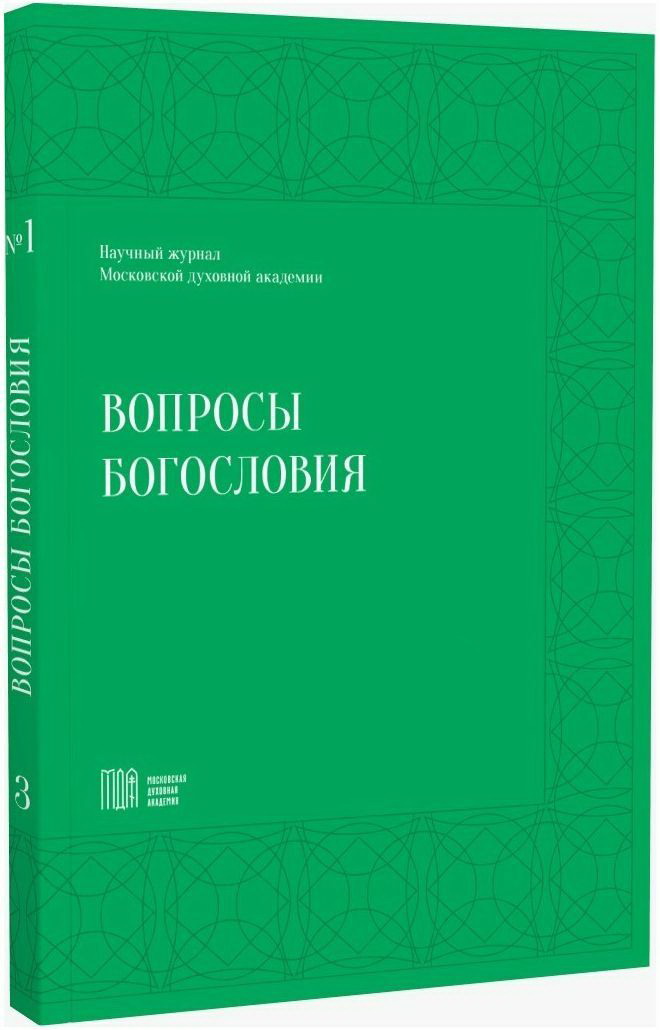The Problem Field of Christian Theodicy: A Historical Essay
DOI:
https://doi.org/10.31802/PWG.2021.6.2.008Keywords:
Divine attributes, evil, greater good, suffering, theodicyAbstract
The problem of theodicy and reflections about evil have always disturbed the minds of philosophers and theologians. What has changed from the era of antiquity to our time? It can be said that antiquity, as well as Christian classical tradition, did not attach to the problem of evil the importance the second half of the 20th century bestowed on it. The moral and ontological aspect of evil, although raised questions, but could be safely answered in the spirit of St. Basil the Great: only the evil generated by the freedom of human choice is real; other kinds of evil are not evil in themselves. After the two world wars caused a collapse of hopes for building a new humanistic world, theologians and philosophers started contemplating in Gottfried Leibniz’s manner: do we live in the best possible world? How is it possible to believe in the God preached by Christians and allow the presence of so much suffering, given that the Lord is endowed with omnipotence and absolute goodness? The new secular and largely de-Christianized society cannot arrange an answer in the spirit of the holy fathers, where much rests on mystery. Modern people pose the question more radically: is it possible to rationally comprehend the mystery of evil and understand the Providence of God? To this challenge, thinkers of the 20th and 21st centuries are trying to find an answer which would satisfy not only religious believers, but also non-believers.
Downloads
References
Аверинцев С. С. Теодицея // Новая философская энциклопедия: в 4 т. Т. 4. М.: Мысль, 2010. С. 31.
Бердяев Н. А. Экзистенциальная диалектика божественного и человеческого. Париж: YMCA-Press, 1952.
Бубер М. Два образа веры. М.: Республика, 1995.
Вагеманс Э. Литературно-философская интерпретация лиссабонского землетрясения: португало-франко-русская теодицея // XVIII в. Сборник 22 / ред. Н. Д. Кочеткова. СПб.: Наука, 2002. С. 111–121.
Вышеславцев Б. П. Трагическая теодицея // Путь. 1928. № 9. С. 14–32.
Гагинский А. М. Пролегомены к метатеодицее // Философский журнал. 2020. Т. 13. № 3. С. 67–81.
Гаспаров И. Г. Зло и свободная воля: современные апологии от свободной воли и классический теизм // Философия. Журнал НИУ ВШЭ. 2020. Т. 4. № 4. С. 15–34.
Грицанов А. А. Теодицея // Новейший философский словарь / ред. А. А. Грицанов. Минск: Книжный Дом, 32003. С. 1280.
Зайцев И. Н. Теодицея потаённого Бога: постановка вопроса // Вопросы теологии. 2020. Т. 2. № 2. С. 284–296.
Казаков Е. Ф. «Оправдание» Бога — как «оправдание» мира и человека // Вестник КемГУ. Серия: Гуманитарные и общественные науки. 2017. № 1. С. 66–70.
Кант И. О неудаче всех философских попыток теодицеи // Трактаты и письма. М.: Наука, 1980. С. 60–77.
Котенко А. А. Вопрос о теодицее у Лейбница и Канта // Vita Cogitans. 2002. Вып. 1. С. 175–206.
Лейбниц Г. В. Опыты теодицеи о благости Божией, свободе человека и начале зла / пер. К. Истомина. М.: Юрайт, 2019.
Литтл Б. Бог и бессмысленное зло: теодицея сотворённого мироустройства. Симферополь: ДИАЙПИ, 2008.
Мюррей М. Теодицея // Оксфордское руководство по философской теологии / сост. Т. П. Флинт, М. К. Рей; ред. М. О. Кедрова. М.: Языки славянской культуры, 2013. С. 525–556.
Ревуненкова Н. В., Семенкин Н. С. Теодицея // Философский словарь / ред. И. Т. Фролов. М.: Республика, 72001. С. 559.
Смирнов Д. В. Зло. Учение о зле в теологии и философии латинского средневековья. Представления о зле протестантских авторов // ПЭ. 2009. Т. 20. С. 229–243.
Судаков А. К. Зло. Понятие «зло» в рационалистических системах раннего Нового времени. Учение о зле в немецкой классической философии // ПЭ. 2009. Т. 20. С. 243–249.
Хаутепен А. Бог: открытый вопрос: богословские перспективы современной культуры. М.: ББИ, 2008.
Шохин В. К. Новая для современной России область философско-теологического дискурса // Проблема зла и теодицеи: Материалы международной конференции 6–9 июня 2005 г. / общ. ред. В. Шохин. М.: ИФ РАН, 2006. С. 5–15.
Шохин В. К. Проблема зла: теодицея и апология // Вестник ПСТГУ. Серия I: Богословие. Философия. Религиоведение. 2016. № 5 (67). С. 47–58.
Hart D. B. The Doors of the Sea: Where Was God in the Tsunami? Grand Rapids (Mich.); Cambridge (U. K.): W. B. Eerdmans Publ. Company, 2005.
Hick J. Evil and the God of Love. Basingstoke: Palgrave Macmillan, 2010.
Plöchl W. M. Theodicy // New Catholic Encyclopedia. 2003. Vol. 13. P. 867–869.
Swinburne R. Providence and the Problem of Evil. Oxford: Clarendon Press, 2008.
Tooley М. The Problem of Evil // The Stanford Encyclopedia of Philosophy / ed. E. N. Zalta. 2019. [Электронный ресурс]. URL: https://plato.stanford.edu/archives/spr2019/entries/evil (дата обращения 01.12.2021).
Downloads
Published
How to Cite
License

This work is licensed under a Creative Commons Attribution-ShareAlike 4.0 International License.







